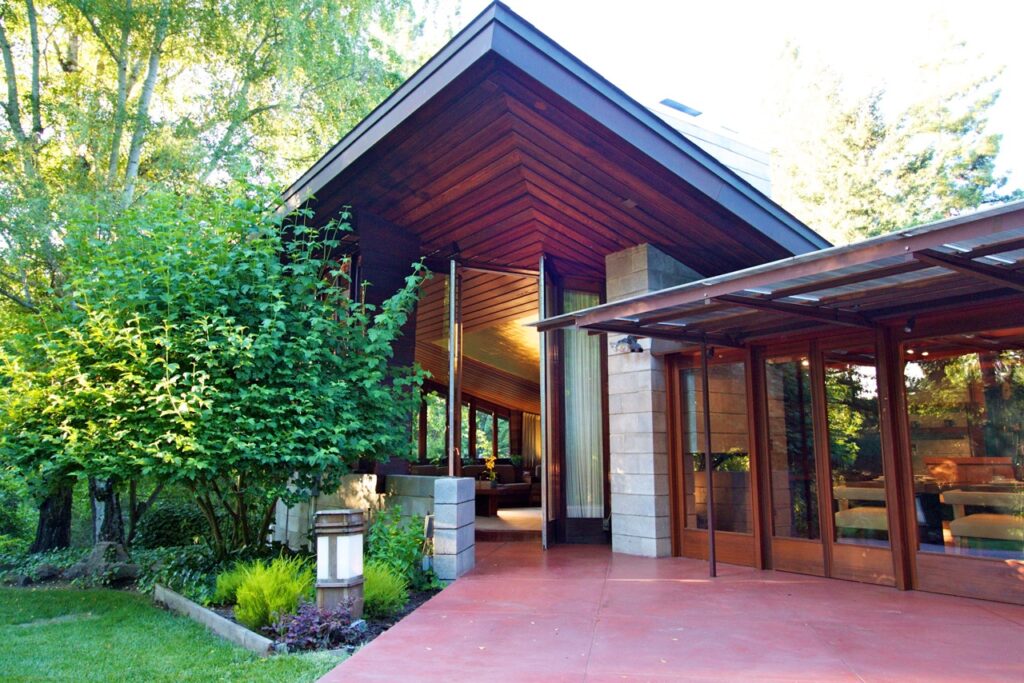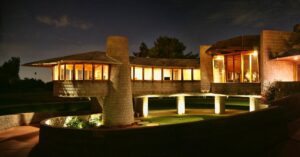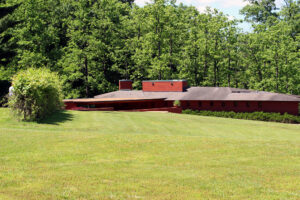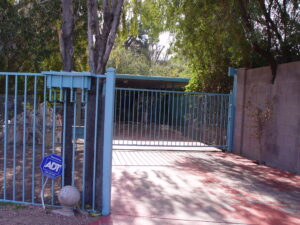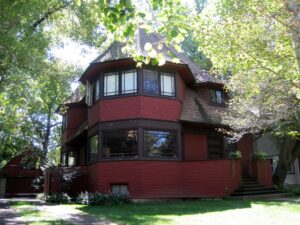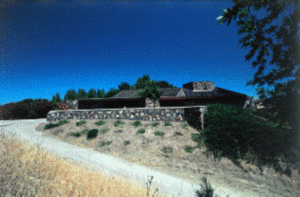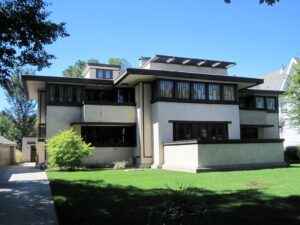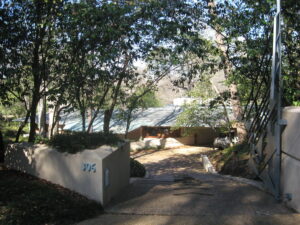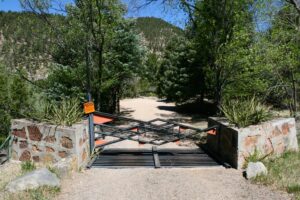One of Frank Lloyd Wright’s many stunning accomplishments was his vision describing how he perceived cities and the architecture of buildings should look. The word he used to describe this vision was Usonia, and he used the adjective Usonian – rather than American – to describe the character of the look. This page may contain affiliate links. See our disclosure about affiliate links here.
Photo Credit: Jeff Anderson
Tours
Privately owned. No tours are available. However, the home is available for rental for private events.
Location
6 Great Oak Circle, Orinda, California
Roughly five dozen Usonian homes were designed by Wright, from 1936 to about 1950. They were typically rather small, L-shaped, single-story structures, did not include a garage and had little storage. Roofs were flat and there were large cantilevered overhangs (Wright coined the phrase “carport” to describe the part of an overhang used to shelter a vehicle); the dwellings were constructed with cinder blocks and included radiant heating in the floors.
Living Graciously
Perhaps not quite “typical” of Usonian design – due to its 4,350 square feet of space – is the Maynard Buehler House in Orinda, California. Almost hidden from sight in a cul-de-sac, Wright designed it for Maynard and Katharine in 1948 on three acres of land there, following a request from Katharine. The drawings took four months to complete; the home went up in a year.
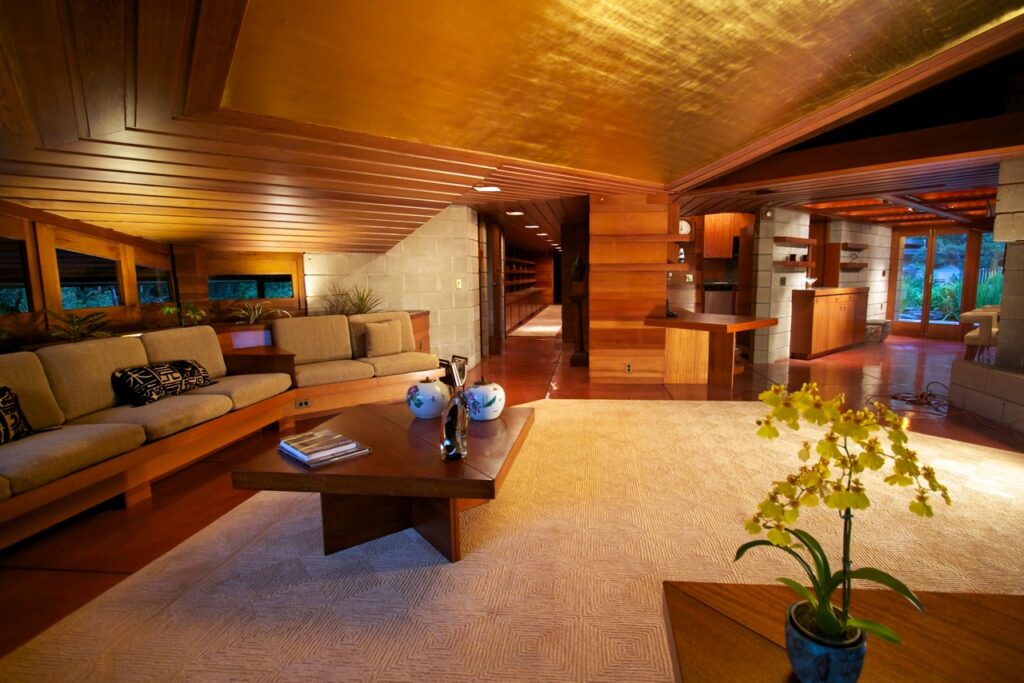
A Golden Plan
Perhaps not quite “typical” of Usonian design – due to its 4,350 square feet of space – is the Maynard Buehler House in Orinda, California. Almost hidden from sight in a cul-de-sac, Wright designed it for Maynard and Katharine in 1948 on three acres of land there, following a request from Katharine. The drawings took four months to complete; the home went up in a year.
The design is organized in the typical L-shape of numerous Usonians, has a distinct flat roof (of copper), carports, under-the-floor (Cherokee Red-colored concrete) radiant heating and a concrete-block exterior. There is a unique octagonal living room under a shed roof, with a gold leaf inset that reflects light into the space.
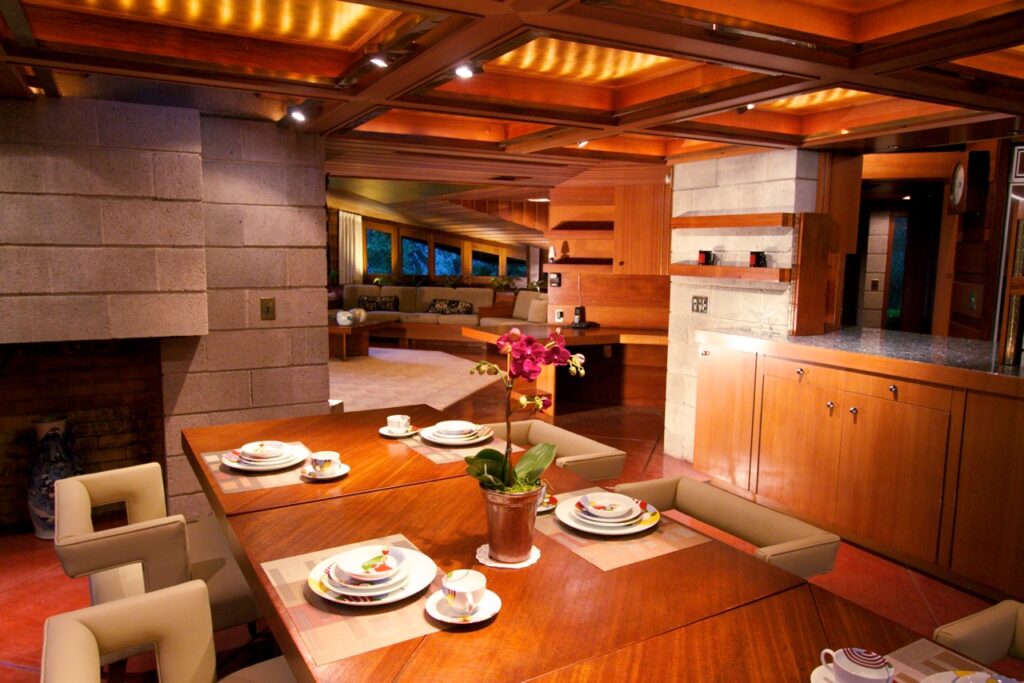
Japanese Influence
The three acres of land – purchased one acre at a time – have gardens created by Henry Matsutani (designer of Golden Gate Park’s Japanese Gardens), a ceremonial Japanese tea pavilion, a greenhouse and a guesthouse.
The supervising architect on the project in 1948 was Walter Olds. After a fire partially destroyed the house in 1994, Olds – then 75 years old – was asked by the 89-year-old Buehler to oversee the rebuild, since – as Olds told the NY Times in 2003 – Maynard had said; “”Well, Walter, You figured this all out in ’49. I don’t see why you can’t figure it out now.” Olds did figure it out, and the result is magnificent.
Resources, Links & Products
Browse these resources for more information about this FLW Building, it’s history and information about the region.
- A Life Lived Wright / In 1948, Frank Lloyd Wright designed a house in Ornida where Katie Buehler has been ‘living graciously’ ever since by Marie Krenz, Special to The Chronicle (published Saturday, October 1, 2005)
- A Frank Lloyd Wright House That Comes With a Side of Zen by Sarah Firshein (Thursday, November 17, 2011)
- Berkeley Architect Built, Rebuilt Frank Lloyd Wright Home by Tracey Talyor for Berkeleyside (July 19, 2011)

